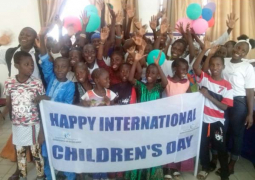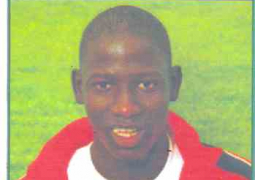Andrea Lennberg, chairperson of Industries for Africa Foundation (IFAF) has said her foundation is working closely with officials to establish electrical stepping motors to support and transform the basic technical knowledge to get industrialised.
Ms Andrea, who walked into The Point offices recently with her Gambian counterpart Salifu Ablie Jallow, said the Foundation exists to support African entrepreneurs and farmers in establishing enterprises which can provide safe and secure employment for people.
She said: “Other attempts have tended to focus on both simplistic craft and trading solutions or the transfer of hi-tech machinery without support or purpose. We focus on initiatives adding real value to primary or natural resources with local enterprises using modern production techniques enabling the effective production of needed goods - and able to be competitive in the global marketplace.”
According to her, IFAF is Non-Governmental Organization, nonprofit-making founded and based in
“We support the creation of enterprises adding value to natural and primary resources. We work with African individuals and governments, banks and educational institutes and also help to identify needs and opportunities for African countries,” she added.
She also said her foundation get connected with the UTG Gambia through one Salifu Ablie Jallow who was a student at the UTG and has shown great interest in science and technology, since then the networking has been going on up to date.
Electrical stepping motors small in size is used to transform an old fashion Computer Numerous Control machines into high tech in easy use and maintain machines, that can be operated using a computer.
The foundation is strictly a knowledge transfer and support in technicality and
“In
This is because of the cooperation between the foundation and UTG, which makes it possible for Salifu to start up the manufacturing of the electrical stepping motors, which is a less investment because he didn’t have to build a factory at the same time; he can use a new factory as training facility for the students, so it is a win win situation for everybody.
For his part, Salifu Ablie Jallow, who was a student at the
According to him, when he explained it to the chairperson of Industries for Africa Foundation, she connected him to their project manager, who suggested that they could start with electric motor project; it was then they invited him to
In early January some experts from the foundation visited the UTG and discussed with the vice chancellor. “When he heard about this electric motor project he invited us to have it in collaboration with the science and technology they are innovating in Faraba Banta, because it is an opportunity for the UTG to be able to learn skills of manufacturing electric motors Computer Numerous Control programming too.
He said the foundation is also operating in other countries and has also cotton trial initiatives to support The Gambia and African countries to get a basic infrastructure in place to allow them to add value to their own raw materials because they have a lot of raw materials such as the mango and cotton.
“The only thing that keeps you from making profit and getting industrialized is that you don’t have the industrialized techniques in place to add value and that’s what we want to achieve in



